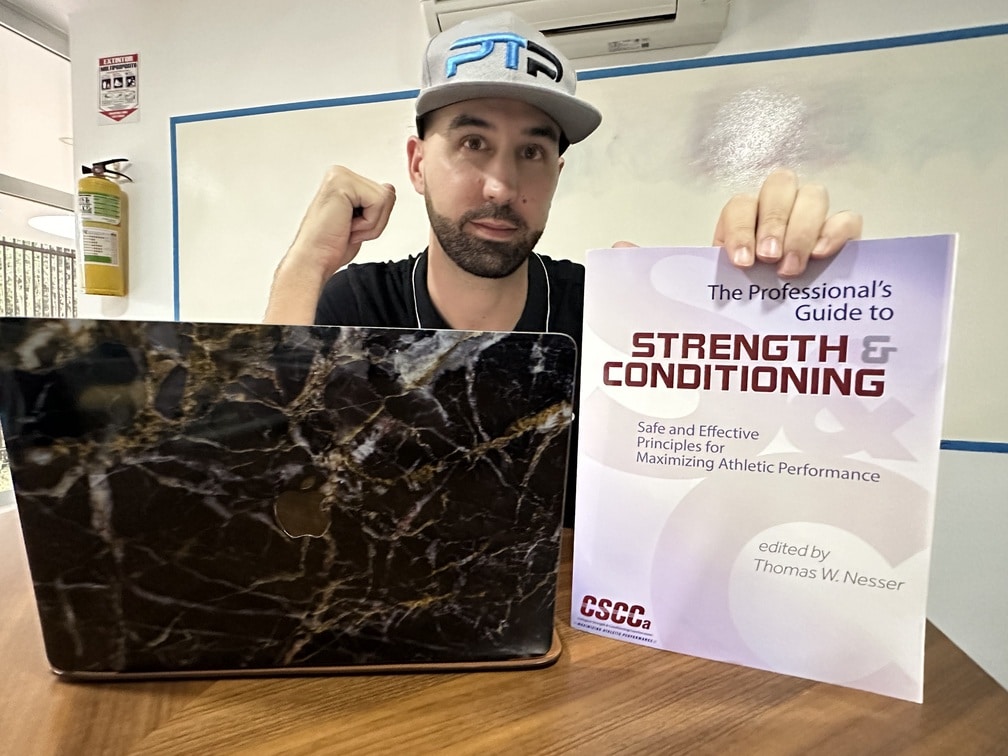
Hey everybody, and welcome to my PT Pioneer Collegiate Strength and Conditioning Coaches Association review.
This review is based on my experience taking the CSCCa Certification exam, along with my experience using this and other strength and conditioning certifications for over ten years.
Additionally, our PTPioneer team includes several coaches and trainers certified through the major fitness organizations and we know which certifications gyms, teams, and employers like to see on a resume.
CSCCa is one of the most prestigious certifications in fitness science, so buckle up and get ready as I pop open the hood of this behemoth with the following:
- The Pros and Cons of CSCCa
- Cost of Study Packages
- Quality of Study Materials
- Exam Layout and Passing Grade
- …and lots more!
So with that said, let’s dive straight into it.
I also highly recommend that you take the quiz and find out which CSCCa certification is best for your career goals.
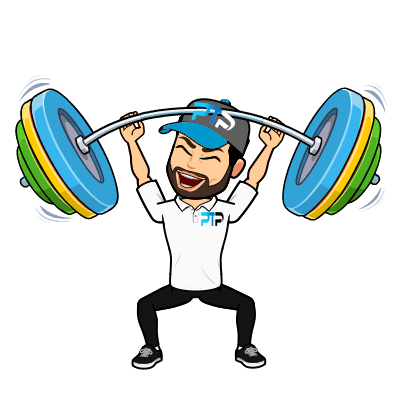
What is the CSCCa Certification?

Join me below to gain a deep insight into the primary focus of CSCCa certification.
Every certification has its flavor, despite all holding to the same principles, tenets, and evidence-based science regarding health and fitness.
However, most certifications have a chosen area of focus, usually determined in the early stages of their inception.
Some certifications are more focused on corrective exercise protocols, such as NASM, while others may emphasize nutrition.
In the case of CSCCa, it’s obvious that their focus is strength and conditioning. However, many would argue that institutions like NASM and NSCA are also S&C-centric on account of their content.
The difference with CSCCa is its strength and conditioning programs are focused on developing coaches specifically for elite performance population groups. At the same time, the rest can be applied to a broader market.
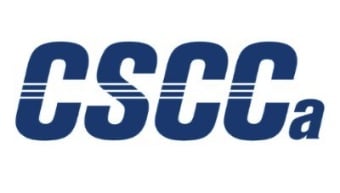
CSCCa General Information
- Exam cost: $470 for non-members and $360 for members
- Study material cost: $500-$1000+
- Prerequisites: Must have completed internship prior and need to be a full time strength and conditioning coach or student preparing to be one
- Exam passing score: 74%
- Exam pass rate: 59.5% on written section / 81.3% on practical section
- Average completion time: 4 months
CSCCa credibility and reputation
As I mentioned, CSCCa is one of the most prestigious fitness certifications.
The reason behind this level of respect is the particular strength and conditioning curriculum, which advanced sports science level content.
The CSCCa was founded in the 1970s to consolidate what they identified as necessary in high-level competitive sports.
That necessity is true strength and conditioning coaching skills. Strength and conditioning are directly linked to improvements in performance, recovery, and injury prevention, which in turn increases the level of competition in sports.
This leads to a higher entertainment value in the sporting world and a more profitable institution.
Because of this new normal, the NCAA or National College Athletics Association instituted legislation requiring all colleges, professional teams, and athletes to have a mandatory S&C coaching department.
Due to the high stakes in athletic programs, no standard PT could cut it as a strength and conditioning coach in this profession, which is why the CSCCa is so in-depth with strict entry requirements.
To have the opportunity to be accepted for the CSCCa SCCC or Strength and Conditioning Coach Certified program, you must have extensive experience as an S&C specialist in college-level or professional sports.
Alternatively, you must be an undergrad or postgrad student qualifying to be an S&C specialist.
And that’s just the SCCC certification.
CSCCa has another qualification, the even more prestigious MSCC or Master Strength and Conditioning Coach certification.
To be accepted for this version, you will need at least 12 years of experience in the field of S&C as an athletics coach at the college or professional level.
Obtaining a CSCCa certification is one of the highest honors in professional fitness.
Is the CSCCa Certification worth it?
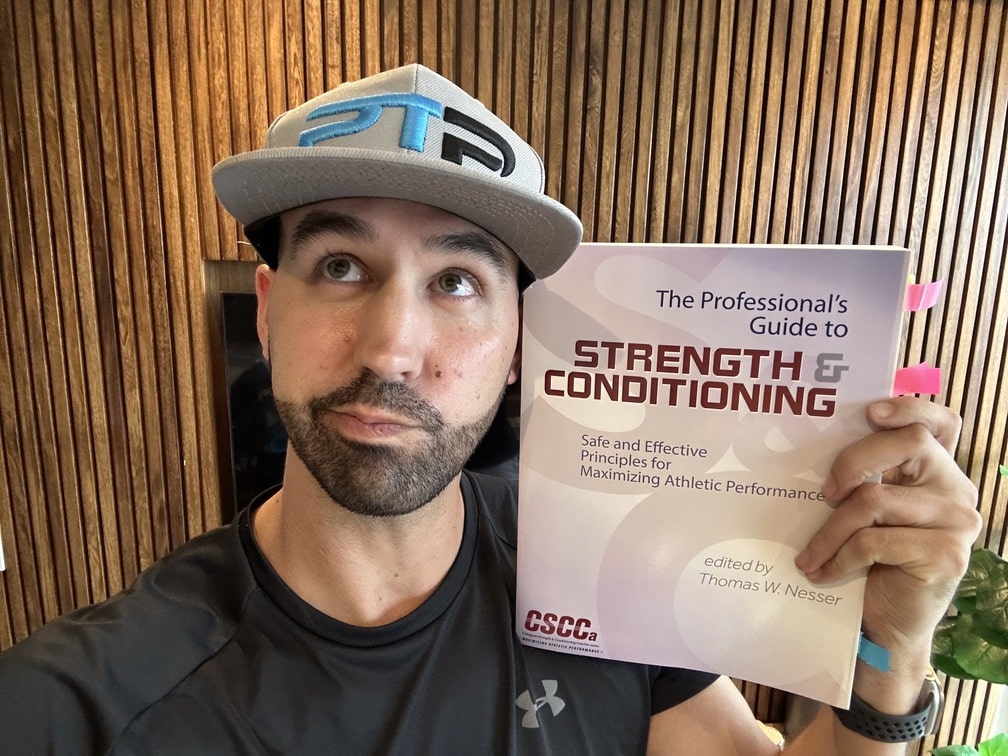
Yes, the CSCCa is worth it 100% if you want to be a strength and conditioning coach.
Let’s look at some of the pros and cons of this certification.
I’ve compiled some of what I recognized as the Pros and Cons of the CSCCa to give you some preliminary insight.
Pros
- NCCA Accredited
- The highest honor in Strength and Conditioning
- College-level education and training
- Practical, hands-on learning
One big win is that the CSCCa is an NCCA-accredited cert. I’ll get into why that’s important later, but having this approval seal adds to the cert’s legitimacy.
Next is that CSCCa is considered the highest honor in S&C coaching. There are numerous S&C certifications out there, such as the NSCA CSCS and NASM PES.
Both are great and could get you far, but the CSCCa takes the cake regarding elite-level athletic coaching.
The curriculum offered by CSCCa is as close to a university standard as you can get without going to university.
Since one of the standard prerequisites for both the SCCC and MSCC certs under CSCCa is having a college degree, it makes sense that the curriculum sits at that level, if not higher.
Lastly, CSCCa is a practical program. You will be learning by conducting real-world S&C assessments and instruction.
This is something that sets it apart from many certifications, which have very little in the way of practical training, if any.
Cons
- Very stringent prerequisites
- Scheduled and limited enrollment
The biggest con, a matter of perspective, is the strict prerequisites for incoming candidates.
Aside from having a degree or in the process of getting one, you must not specialize or hold credentials in any practice outside of the scope of S&C.
Exclusive PTP CPT Offers |
||
|---|---|---|
Gold Standard Cert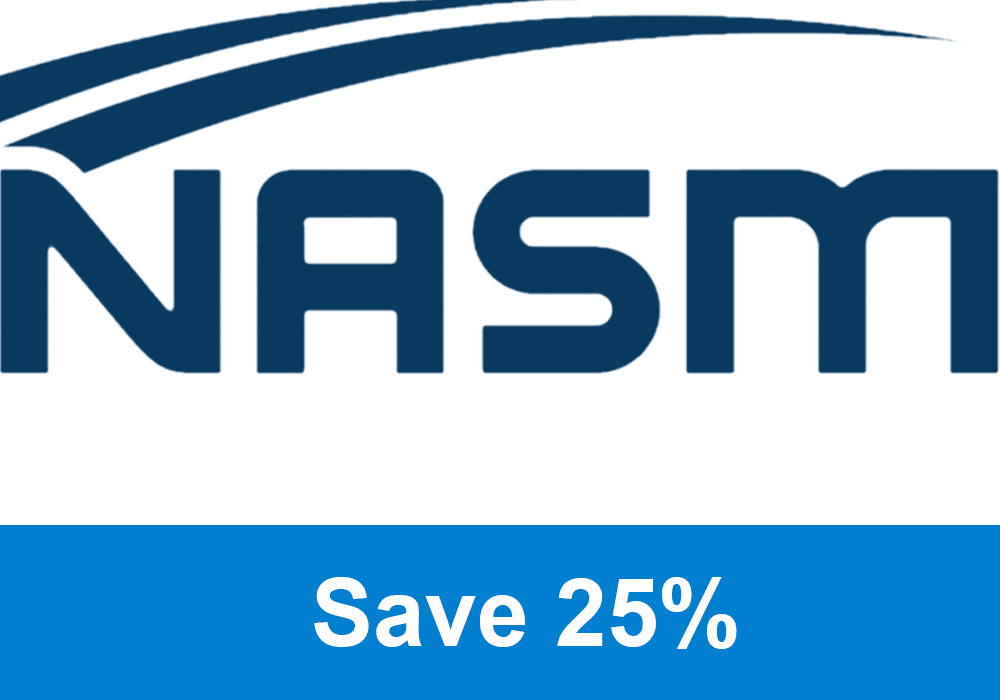 | Most Popular Cert | Best Study Materials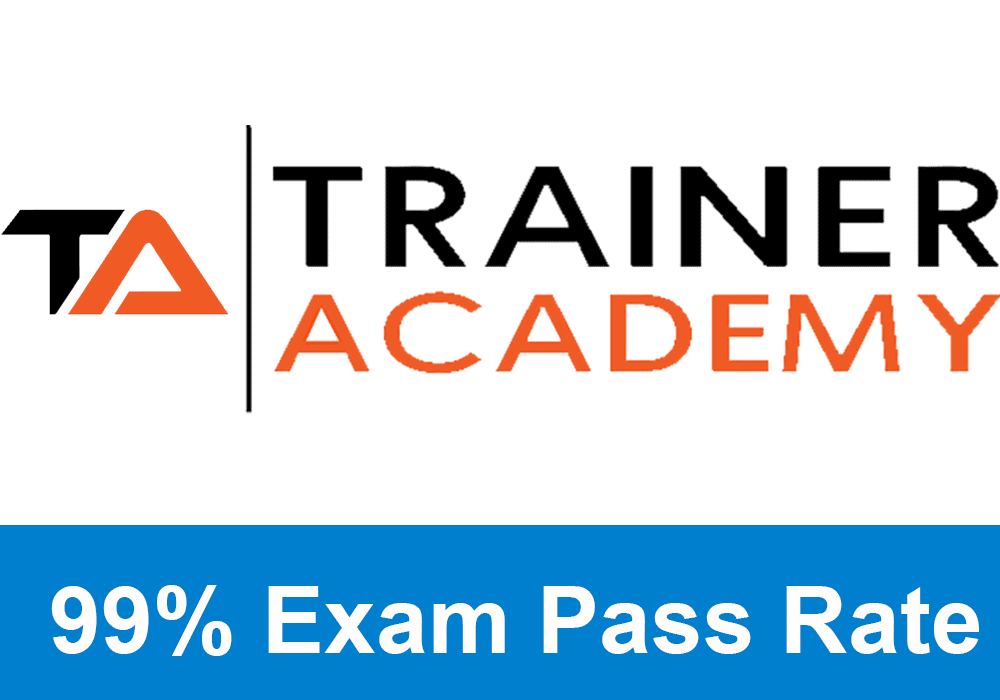 |
A Good Option | A Good Option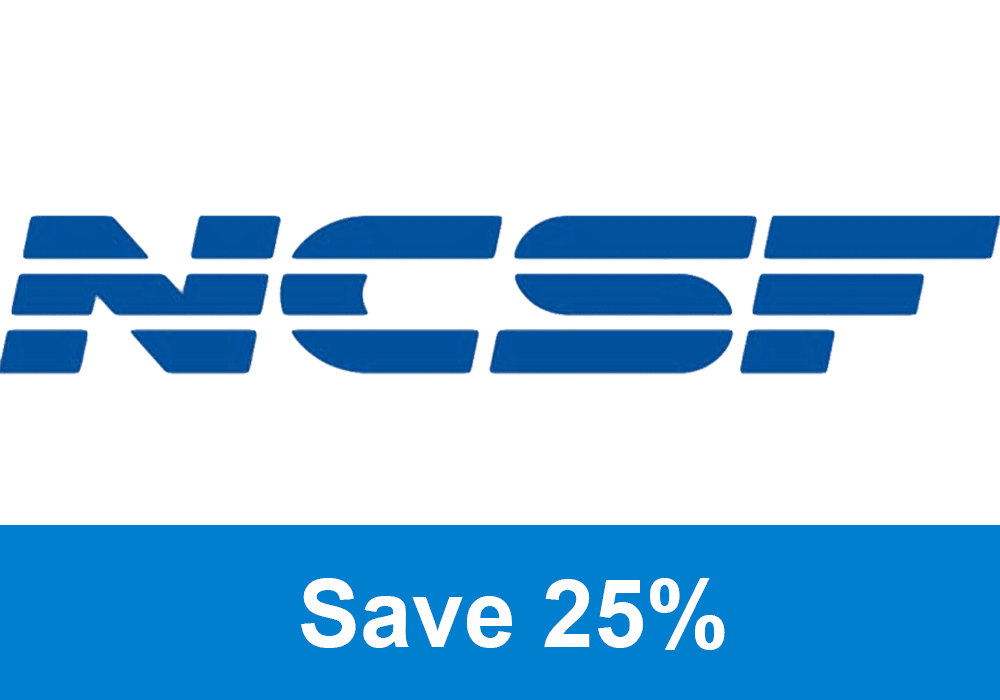 | Best CPT for you?  |
This is done under the belief that any focus or attention toward another field would dilute your ability to function as a competent S&C coach.
This is a bit of a reach, but those are their rules.
Lastly, there is a set enrollment window and entry spots. This adds pressure to your ability to apply for the program successfully.
I feel it is necessary, owing to the large practical portion of the program, requiring hands-on personnel, thus limiting the intake capacity and a set academic calendar.
In that case, it’s not more of a con than a necessary inconvenience.
- Highly respected
- Hands-on training
- Rigorous internship requirement
- Extremely difficult exam
CSCCa vs. other top strength and conditioning coach certifications
CSCCa’s main rival is the Certified Strength and Conditioning Specialist from the National Strength and Conditioning Association–the NSCA CSCS.
Other popular strength and conditioning programs include the ISSA Strength and Conditioning Certification and the NASM Performance Enhancement Specialist (NASM PES).
All of these programs offer some great learning opportunities in the world of fitness. The NSCA CSCS is the most well renowned certification next to the CSCCa, but the requirements are less stringent. You just need a college degree in an exercise-related field.
Both ISSA and NASM’s programs don’t even require that, and are much easier to acquire than the CSCCa, or the CSCS.
For that reason, while ISSA and NASM aren’t as renowned, they still offer benefits, and are more geared towards personal trainers learning about strength and conditioning than people becoming full-time strength coaches.
Who is the certification meant for?
The CSCCa SCCC aims to prepare people to be full-time strength and conditioning coaches. It’s not a personal training or nutritional cert. It’s purely focused on those who want to make a business being strength and conditioning coaches.
- People who want to become collegiate strength and conditioning coaches
- Personal trainers wanting to learn about strength and conditioning
CSCCa course costs and study packages
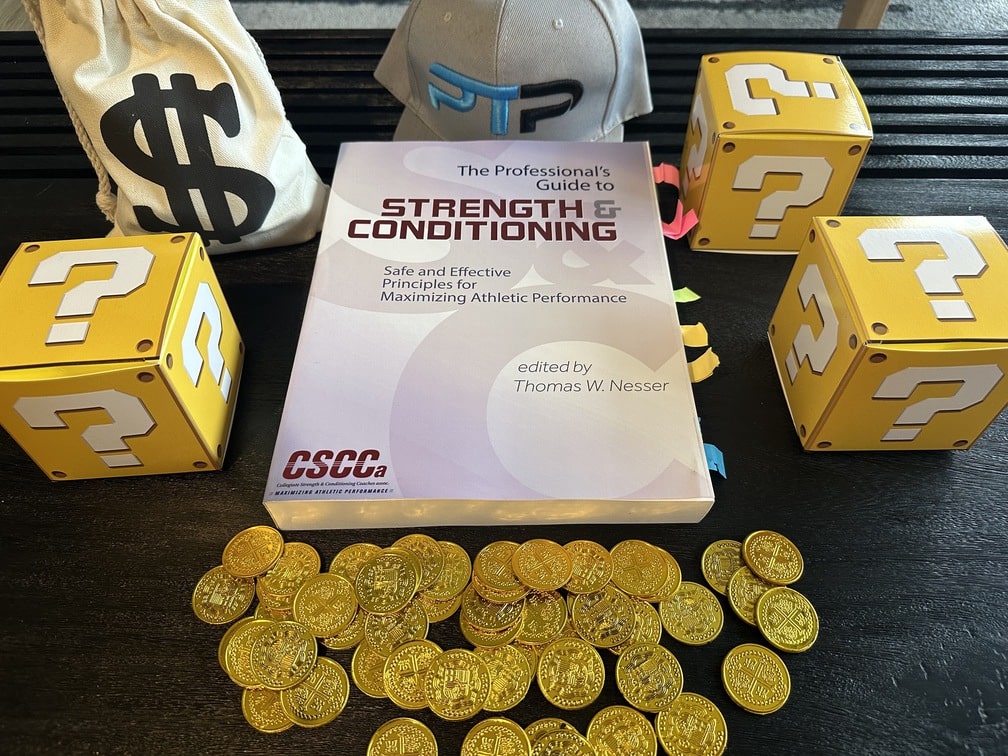
Join me in this section to find out the cost of each study package.
Take a look below for more info!
The CSCCa is a non-profit organization, so costs aren’t as staggering as many big-name certifications.
The SCCC exam registration costs $470 for non-members and $360 for members.
You might be wondering what membership is all about.
Well, many non-profit institutions like the CSCCa, NSCA, and ACSM have membership options that allow candidates and community members to have special access to assistance, resources, and in this case, discounts.
The membership costs $55/per year for students and $110/per year for professionals.
Bear in mind that the standard cost is purely for exam registration.
To obtain the prescribed study materials, you’ll have to purchase them separately, and this can cost up to $500 if you choose to get all the recommended readings.
CSCCa exam prep and study materials
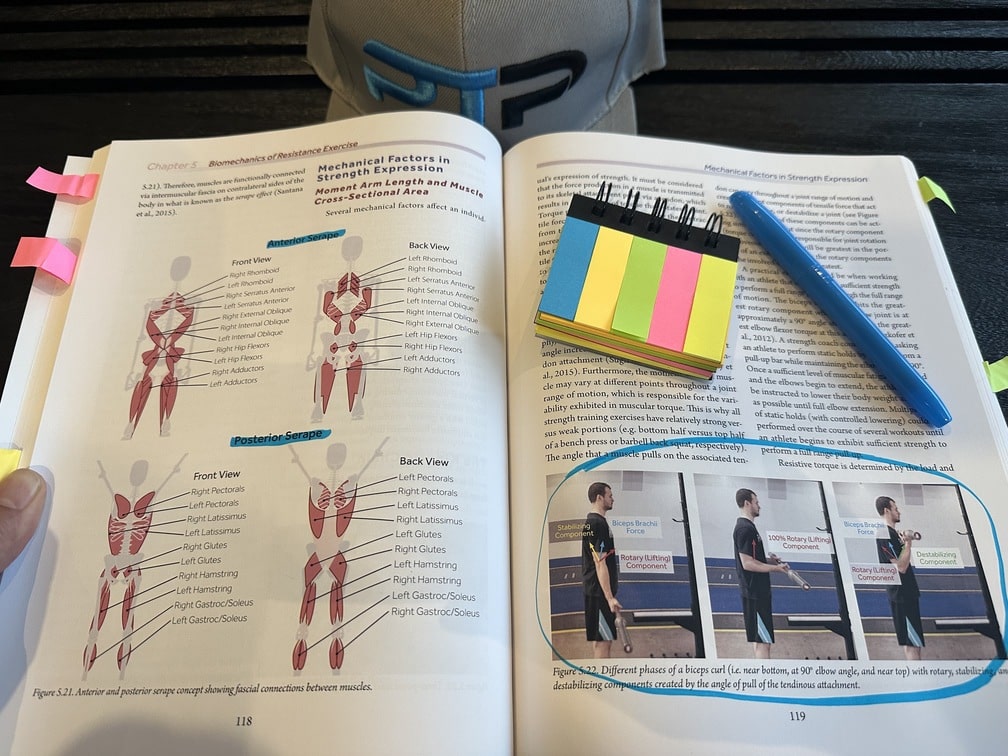
Here, I’ll dissect the quality of study material that CSCCa has to offer.
Let’s find out below if the value is commensurate with the cost.
How much its value and quality can only justify something’s costs.
So to give you some useful insight, I’ve looked at the study materials for the CSCCa and given them a rating out of 10.
This rating will be based on the quality and relevance of exam prep, the variety of options available, and if the value ultimately matches the cost.
Firstly, one glaring reality is that the study materials are not included in what you initially pay for.
Once costs are factored in, the total price isn’t unusual, especially when membership discounts are at play.
However, the inconvenience of not having everything provided in one single transaction knocks off a point or two from the final quality rating.
As for the actual material you will need, CSCCa isn’t very specific. They list recommended materials but don’t state which ones you need.
The list includes the following:
- The Professional’s Guide to Strength and Conditioning: Safe and Effective Principles for Maximizing Athletic Performance.
- National Strength & Conditioning Association. 2016. Essentials of Strength Training and Conditioning, 4th ed
- Exercise Physiology: Theory and Application to Fitness and Performance, 9th ed.
- Designing Resistance Training Programs, 4th ed.
All of these seem great, but there’s no indication of which is the official course text.
Aside from that, you’ll have the option for other recommended resources such as:
Manuals
- 2019-20 NCAA Division I Manual
- 2019-20 NCAA Division II Manual
- 2019-20 NCAA Division III Manual
Articles
- 2002 GSSI Guidelines on Heat Safety in Football: Attacking Heat-Related Death and Illness in Football
- CSCCa and NSCA Joint Consensus Guidelines for Transition Periods
- Management of Sudden Cardiac Arrest in Athletes
- National Athletic Trainers’ Association Position Statement: Preventing Sudden Death in Sports
- NCAA Fact Sheet for Coaches on Sickle Cell Trait
- Preventing Heat Illness: Keeping Athletes from Falling into Danger Zones
- Sickle Cell Trait
- The Inter-Association Task Force for Preventing Sudden Death in Collegiate Conditioning Sessions: Best Practices Recommendations
Videos
- Protecting the Health & Safety of the Athlete: The Weak Link (Jeff Allen 2011)
- Protecting the Health & Safety of the Athlete (Ron Courson, 2012)
- Protecting the Health and Safety of the Student-Athlete (Jeff Allen, 2016)
- Rhabdomyolysis: Overview and Prevention Strategies (Ron Courson, 2017)
There’s quite a variety of things to choose from, but without any direction on which to focus.
This diminishes the overall value of the study resources, since you’re shooting in the dark pretty much.
The lack of practical resources also cost the CSCCa study materials a few points.
Practice tests and a workbook or study guide would have been welcome.
Overall, I’ll give the CSCCa SCCC study materials a 6/10 rating.
Exclusive PTP CPT Offers |
||
|---|---|---|
Gold Standard Cert | Most Popular Cert | Best Study Materials |
A Good Option | A Good Option | Best CPT for you?  |
I think the materials and resources are targeted at the experienced S&C specialist, which is the whole point of the certification.
In light of this, studying and exam prep rely on you already having a decent grasp of the curriculum and perhaps even having prior experience with some of the materials.
CSCCa Certification requirements
You need to have completed at least a 640-hour internship program before taking the exam.
You also must be a currently practicing full-time strength and conditioning coach at a collegiate or professional level or a student preparing to become a full time strength and conditioning coach at that level.
CSCCa salary
This segment will give you an insight into the expected average income earned if you become certified with CSCCa.
Once certified, it’s time to venture into the big world of professional athletic coaching.
An illustrious career, if I do say so myself.
And as any person with a reasonable attitude towards their career would do, having an idea of your potential income is important.
While I couldn’t find any data specific to CSCCa about income statistics, I found that the average annual income for S&C coaches in America is $44,290 annually.
This varies widely depending on many factors; chief among them is the organization you work under.
For example, a big-league S&C coach working in the NFL or NBA could easily earn up to $500k each year!
The statistics I’m presenting cover a wide base of career engagement, including phys-ed teachers, but with a CSCCa qualification, you should ideally be aiming for more prestigious positions.
Taking the CSCCa Certification exam
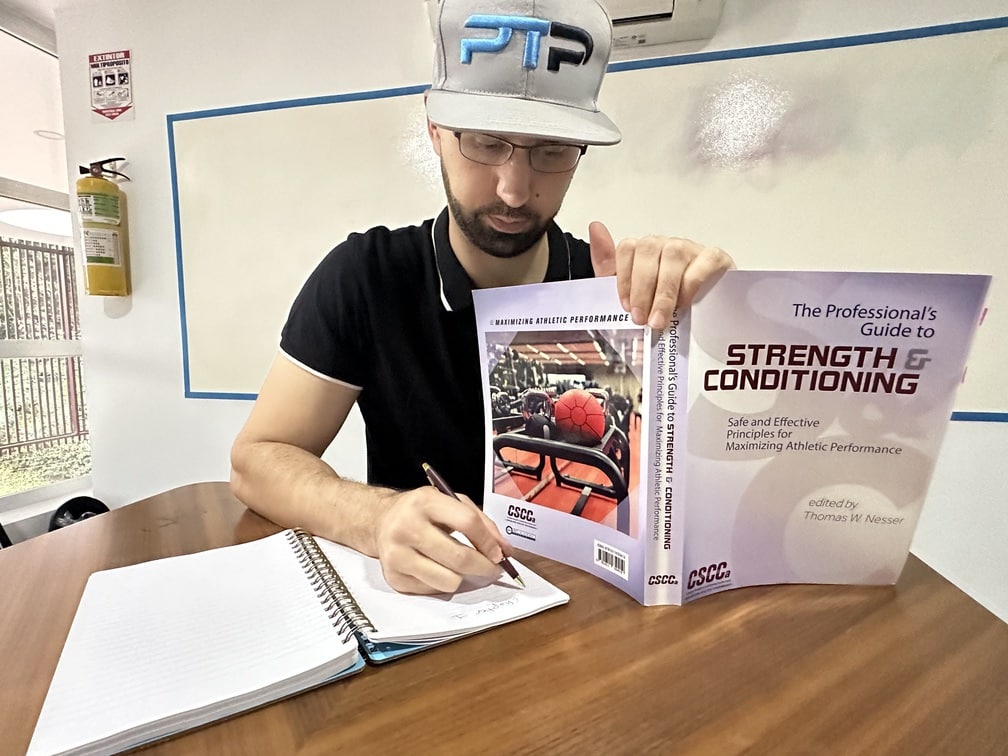
Did you know that it’s easier to pass an exam if you thoroughly understand the layout and passing grade?
You’ll find this segment very enlightening.
Understanding the way the exam is structured is pivotal to your success when taking it along with knowing the information.
Knowing how many questions there are and what areas of focus you’ll be assessed on will allow you to develop the right game plan when preparing for the ultimate challenge.
The CSCCa SCCC exam is divided into two distinct parts: the written and practical parts.
The written exam has a total of 150 multiple-choice questions.
The content is divided into various domains, four domains to be exact, each with its level of focus.
The domains are:
- Exercise Science: 24%
- Assessment and Evaluation 16%
- Program Design 27%
- Exercise Instruction and Training 16%
From this, you can begin to paint a picture of where your focus on studying should be.
The biggest domain in the written exam is program design, and rightfully so.
As an S&C coach, using your expertise to design and implement athletic training programs will be the bulk of your activity. That means emphasizing this aspect in the exam is necessary.
Of the 150 multiple-choice questions, only 125 will count towards your final score, with 25 being unscored.
This is a common practice, and the reason for this is to assess the viability of questions that may be added to future exams.
Depending on how well these secret questions perform, they may or may not be included in future iterations of the exam.
Remember that you won’t be able to single them out, so my best advice is to complete the paper to the best of your ability rather than trying to pick and choose the questions you think will be scored.
Next, we have the practical component of the CSCCa exam.
This part of the exam will have you perform hands-on tasks like in a real S&C scenario.
The practical exam is conducted over two parts, each requiring a demonstration and explanation of the techniques to be assessed.
These stations are:
- Program Design
- Exercise instruction and training
To successfully pass the exam, you need to pass each part separately.
That means failing one and passing the other results in overall failure.
The passing grade is 74%.
So exactly how difficult is the exam with the layout considered? Let’s take a look.
Exam difficulty and pass rate
Let me show you the segments you need to pay more attention to in the exam to have the expected pass rate.
Aside from understanding how an exam is structured, you’d also benefit from understanding how objectively hard it is.
This will allow you to pay the required amount of attention while studying and optimize your test-taking condition and level of preparedness.
According to the most recent statistics on the CSCCa site. The exam pass rate sits at 68.4% across both sections.
Section by section, you’ll find that 59.5% pass the written portion while 81.3% pass the practical exam.
I would have thought the practical exam would be harder, but it makes sense to have these stats if you think about it.
The multiple-choice exam draws from memory, while the practical exam draws from skill.
It’s much easier to apply things you’ve subconsciously adopted through action than memorize and recite facts.
Try and focus your studies on the written portion of the exam.
This is where I feel practice exams would have helped.
Retake fee
In this section, you’ll learn what it costs to retake the exam to help you prepare well to pass on the first attempt.
If you fail the exam, you will be allowed to retake it as many times as necessary within three years.
If you fail both parts of the exam, you will need to retake the entire assessment; however, if you only fail one part, you will simply need to do that part.
The fee for retaining both sections is the same as the exam registration, which means $360 and $470 for members and non-members, respectively.
Retailing one part of the exam costs $205 and $250 for members and non-members, respectively.
As you can see, retaking the exam is pretty costly, so manage your study prep to the best of your ability.
Expected study time
Since proper preparation aids in good performance, find out below how to optimize the exam dates to gauge your level of readiness.
The time it really takes to engage in the CSCCa program and pass the exam will vary from individual to individual, but a great metric is to understand how much time you’re allowed and work from there.
In my experience, a good timeframe for studying is just over half of the enrollment period.
The enrollment period is the time from registration to the final exam date you are allowed as a candidate.
In the case of the CSCCa SCCC, the program has set exam dates, so the amount of time you have depends on how close to your preferred exam date you’ve signed up.
Each academic cycle for the CSCCa SCCC allows for an application deadline in February each year. Exams are held in May each year.
That gives you a four-month window to prepare for the exam.
Based on my recommendation, you should be able to prepare adequately in just over eight weeks.
CSCCa continuing education and recertification
Below, you’ll find the requirements for CSCCa CEU and how to acquire them.
As with most certification programs, the CSCCa does require continuing education units or CEUs to maintain your certification.
This ensures successful candidates, now practicing professionals, maintain a high standard of knowledge and skill, especially in a field that requires so much.
You do this by participating in academic programs that award your time-based credits, represented as CEUs.
You must submit 45 hours’ worth of CEUs every three years to maintain your CSCCa certification.
Most other certifications have a two-year reporting period and usually only require 20 hours of CEUs to recertify.
It’s also important to remember that all CEUs submitted for recertification of the SCCC must be within the field of strength and conditioning, or they won’t count.
CSCCa provides several suitable CEU programs which you can and should take advantage of since they’re already pre-approved and relevant to the program.
You must also supply proof of your current first aid
CSCCa program overall rating
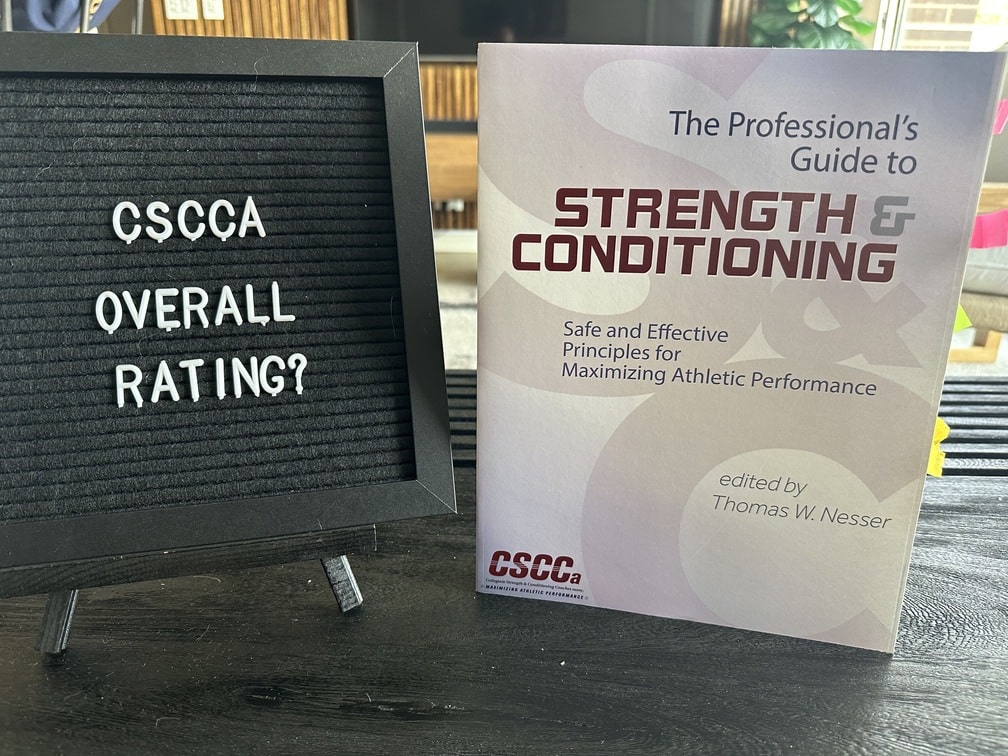
CSCCa SCCC

Ready to start your strength and conditioning coach career? Consider checking out the Collegiate Strength and Conditioning Coaches Association.
Product Currency: USD
Product Price: 470
Product In-Stock: InStock
4
Pros
- Well respected
- Complete curriculum
- Practical hands-on learning
Cons
- Stringent prerequisites
- Long certification process
- Requires you to only focus on S&C
With the high-level opportunities available to you with this certificate, it is worth having.
My overall impression of the CSCCa SCCC program is pretty good, especially because of the career opportunities it presents.
It is the highest standard for S&C coaching and has set the tone for that field.
It’s not a popular cert, but it is well-known and highly regarded within its relevant field.
The entry and eligibility requirements are super strict, and the study materials are hard to figure out, but these seem to be functions of the type of certification it is.
It doesn’t hold your hand because you are meant to be an industry veteran or an academic wizard regarding S&C going in.
I’ll give this one a ⅘ overall rating.
CSCCa Frequently Asked Questions (FAQs)
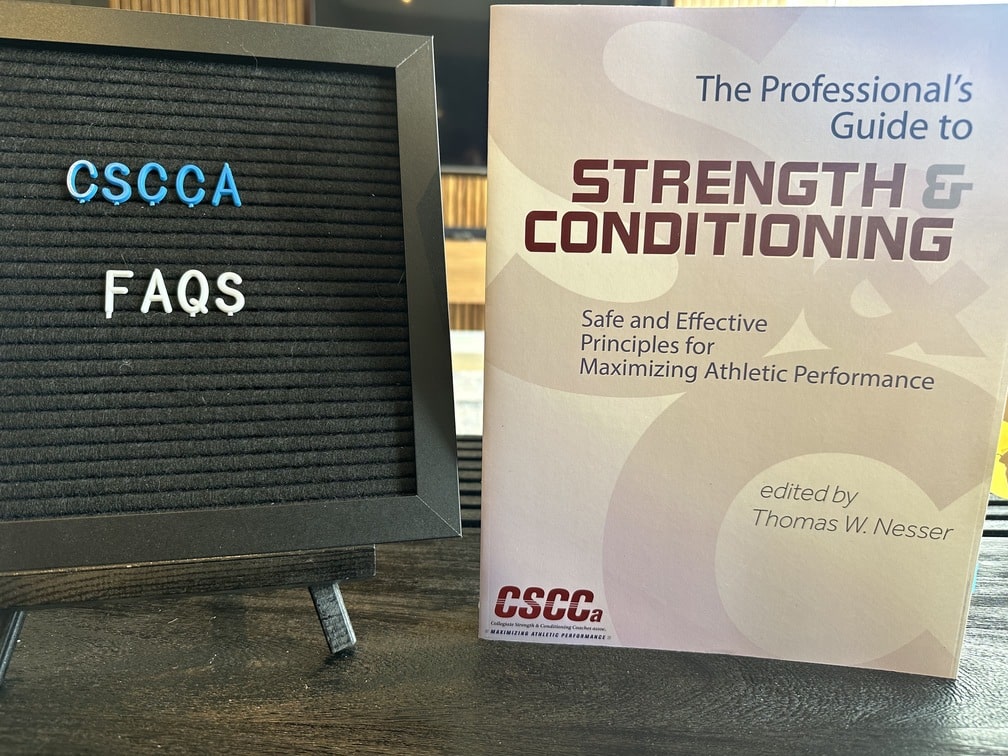
Which is better, CSCCa Certification or NSCA CSCS?
Both of these are extremely competitive certifications that will take you far in the industry. They each have very stringent requirements, although the CSCCa may be a bit more rigorous. I think the main difference between these two is that you can take the CSCS and use it for something other than just being a strength and conditioning coach; whereas the CSCCa cert is purely for that, so it’s a little more specific and less flexible.
How long will it take me to get ready for the CSCCa exam?
After you’ve fulfilled the requirements to take the exam and you sign up, you have a 4-month window of study time. I’d say you need at least two months to prepare for the exam.
Who makes more money: strength and conditioning coaches or personal trainers?
The average salaries of strength and conditioning coaches and personal trainers are fairly similar (at around $50,000); however, the salary potential for either professional is extremely high. If you are a strength coach for a professional sports team or at a high collegiate level you can expect a 5-figure salary, and if you are able to market yourself appropriately as a trainer you can earn a high income as well.

 Have a question?
Have a question? 
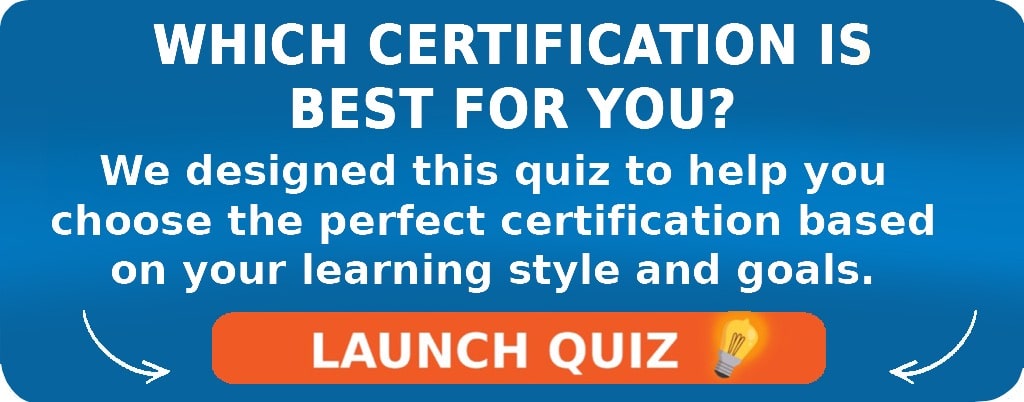
![10 Mejores cursos de entrenador personal en estados unidos [year] 27 10 Mejores cursos de entrenador personal en estados unidos [year] 7](https://www.ptpioneer.com/wp-content/uploads/2023/04/10-Mejores-cursos-de-entrenador-personal.jpg)
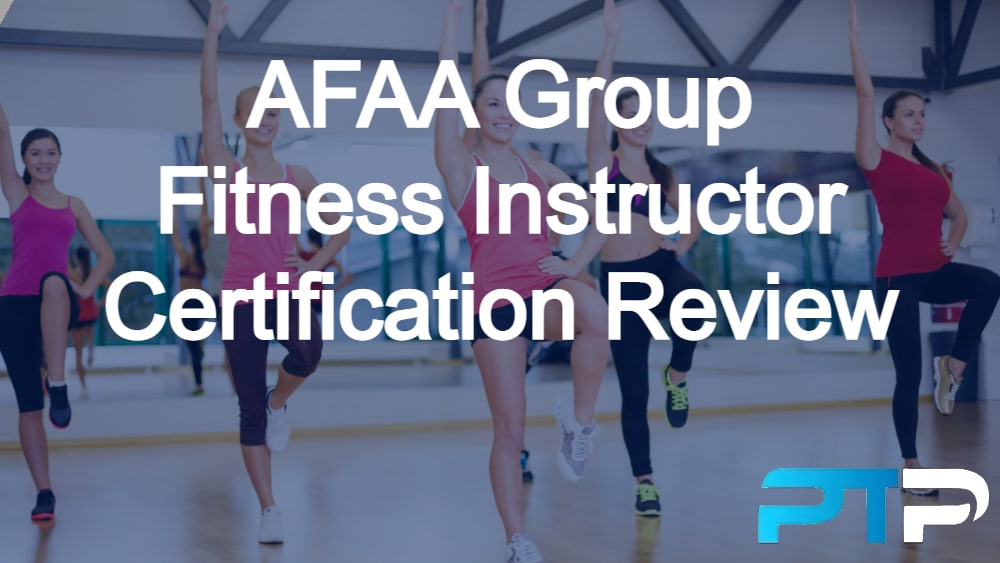
![Best Powerlifting Certification - Top Choices in [year] 29 Best Powerlifting Certification](https://www.ptpioneer.com/wp-content/uploads/2021/10/Best-Powerlifting-Certification.jpg)
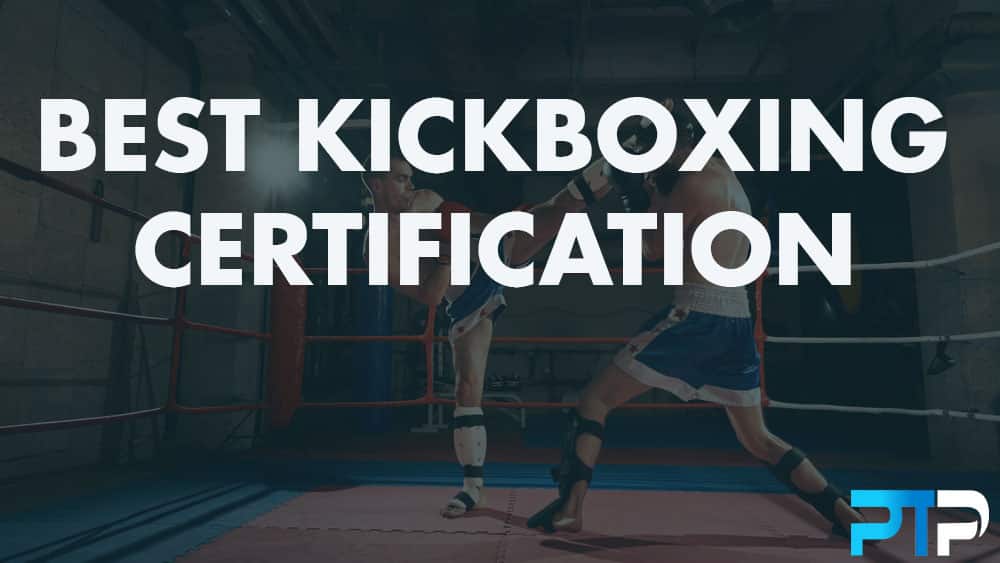
![Best Senior Fitness Certifications - [year] Recommendations 31 Best Senior Fitness Certification](https://www.ptpioneer.com/wp-content/uploads/2021/09/Best-Senior-Fitness-Certification.jpg)
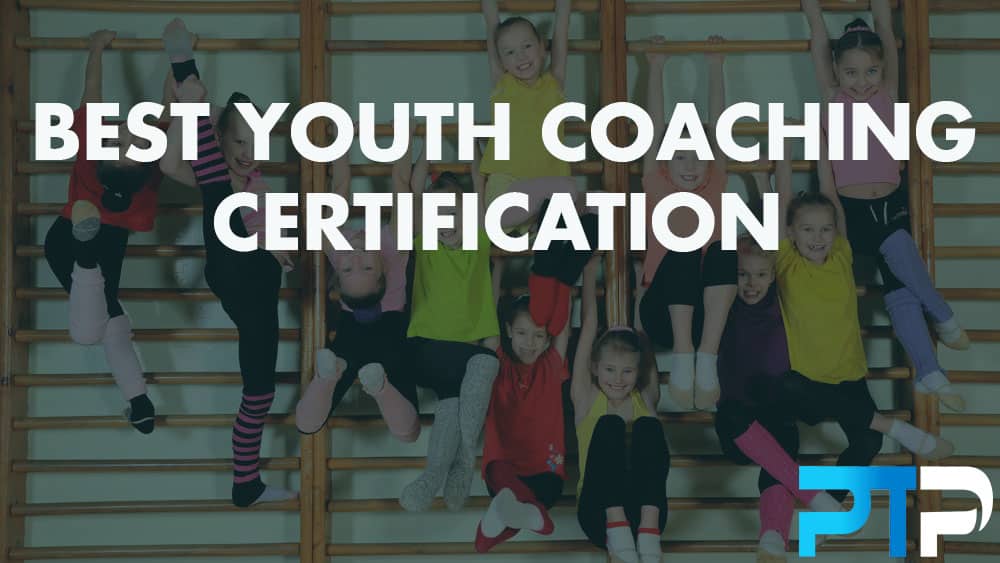

Tyler Read
PTPioneer Editorial Integrity
All content published on PTPioneer is checked and reviewed extensively by our staff of experienced personal trainers, nutrition coaches, and other Fitness Experts. This is to make sure that the content you are reading is fact-checked for accuracy, contains up-to-date information, and is relevant. We only add trustworthy citations that you can find at the bottom of each article. You can read more about our editorial integrity here.